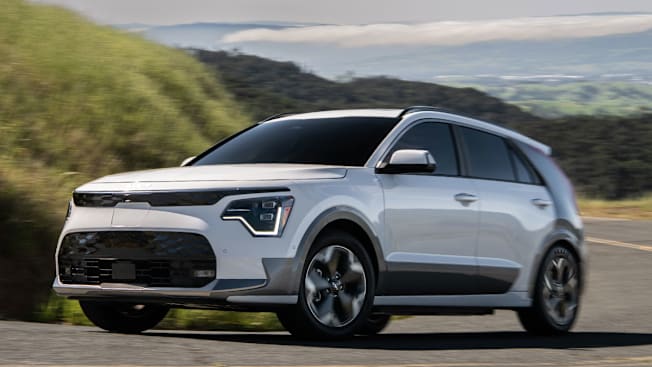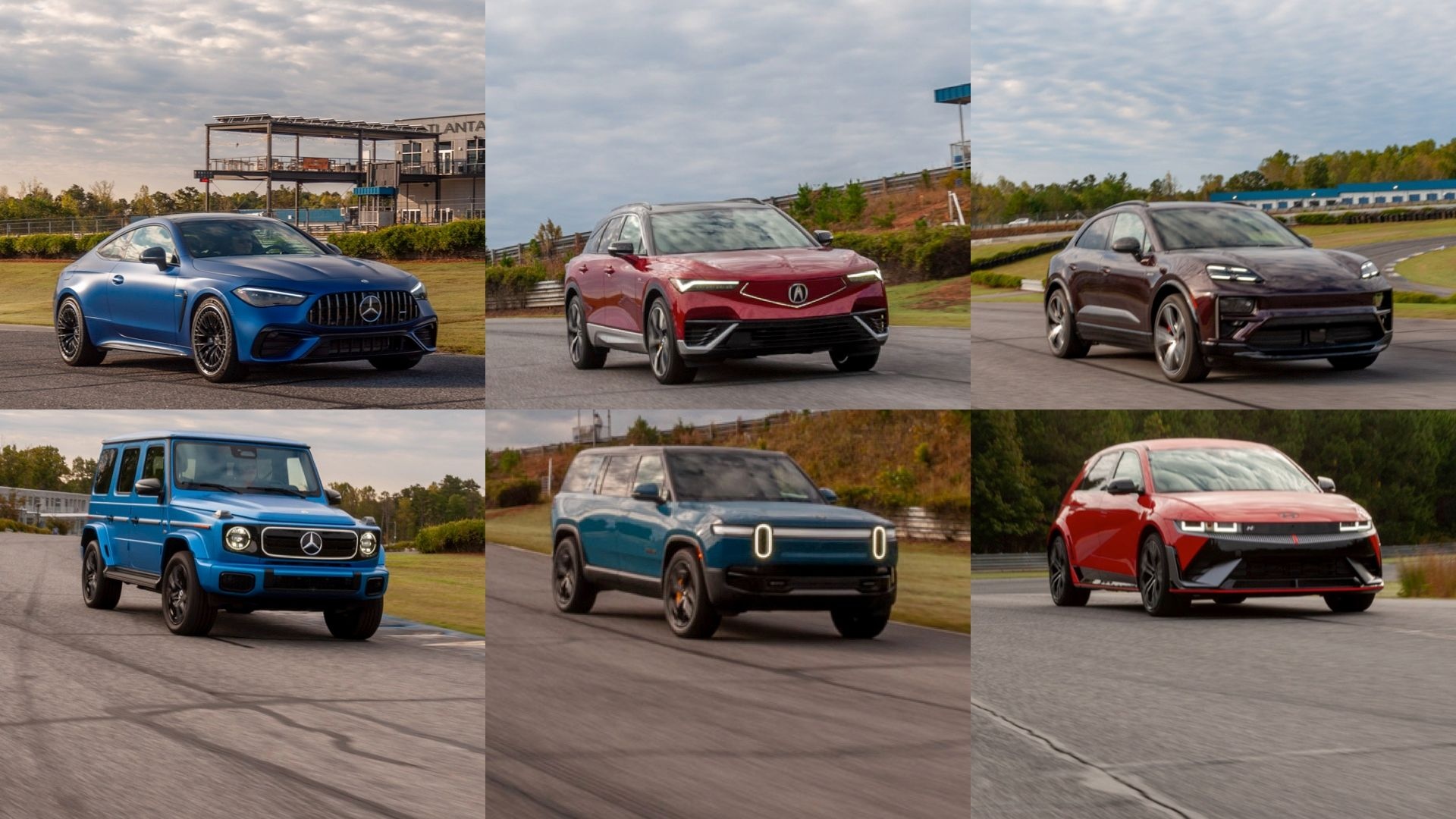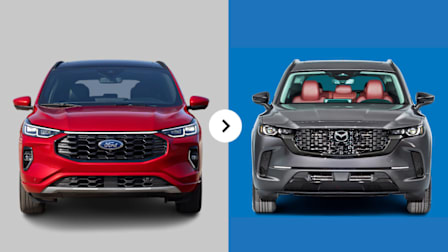Choosing the best type of vehicle to buy can feel overwhelming. You want something reliable, affordable, and suited to your lifestyle.
But with so many options—sedans, SUVs, trucks, electric cars—how do you know which one is right for you? This guide will help you cut through the noise and find the perfect match for your needs and budget. Keep reading, and you’ll discover the key factors that make one vehicle better than another for your unique situation.
Your next car could be closer than you think.
Choosing The Right Vehicle
Choosing the right vehicle is a key decision. It affects your daily life and wallet. The right choice depends on several factors. This guide helps you think about what matters most.
Assessing Your Needs
Think about how you will use the vehicle. Do you need space for family or cargo? Will you drive mostly in the city or on highways? Consider the number of passengers and the type of trips you take. Your lifestyle shapes the best vehicle for you.
Budget Considerations
Set a clear budget before shopping. Include the vehicle price, taxes, and fees. Don’t forget insurance and maintenance costs. Choose a vehicle you can afford without stress. Sticking to your budget helps avoid future money problems.
Fuel Efficiency And Costs
Fuel efficiency saves money over time. Check miles per gallon (MPG) ratings for each vehicle. Smaller engines often use less fuel. Hybrid or electric vehicles can reduce fuel expenses. Think about how much driving you do daily.
Environmental Impact
Vehicles affect the environment in many ways. Lower emissions help reduce air pollution. Electric and hybrid cars produce fewer emissions. Consider your role in protecting the planet. A cleaner vehicle choice benefits everyone.
Types Of Vehicles
Choosing the right vehicle depends on your needs and lifestyle. Each type of vehicle offers unique benefits and suits different purposes. Knowing the main types helps you find the perfect match. Here are the common types of vehicles you can consider.
Sedans
Sedans are popular for daily driving. They offer good fuel efficiency and smooth rides. Sedans have four doors and a separate trunk. They fit small families or individuals well. These cars are easy to park and drive in the city.
Suvs
SUVs provide more space and power. They handle rough roads and bad weather better. SUVs come in various sizes, from compact to large. They are great for families and outdoor activities. Many SUVs offer all-wheel drive for extra grip.
Trucks
Trucks are strong and built for work. They can carry heavy loads and tow trailers. Trucks have large cargo beds for hauling items. They suit people who need a tough vehicle. Trucks often have higher ground clearance.
Electric Vehicles
Electric vehicles run on batteries, not gas. They produce no tailpipe emissions. EVs save money on fuel and maintenance. Charging takes longer than refueling a gas car. They are quiet and have instant acceleration.
Hybrids
Hybrids combine a gas engine with an electric motor. This mix improves fuel economy and lowers emissions. Hybrids can switch between power sources automatically. They are a good choice for city and highway driving. Many hybrids look like regular cars.
Compact Cars
Compact cars are small and easy to park. They use less fuel and cost less to buy. These cars are practical for city life. Compact cars usually seat four to five people. They are simple, affordable, and efficient.
Luxury Vehicles
Luxury vehicles offer comfort, style, and advanced features. They have premium interiors and smooth rides. Luxury cars often include the latest technology. They cost more but provide a high-end experience. These vehicles appeal to those who want extra comfort.
Performance Factors
Choosing the best vehicle depends a lot on how it performs. Performance factors help you know if a car fits your needs. These include power, safety, technology, and upkeep. Each part affects your driving experience and costs over time.
Engine Power And Handling
Engine power shows how fast a vehicle can go and how well it moves. More power means better speed and easier overtaking. Handling means how the vehicle turns and stays stable on the road. Good handling makes driving safer and more fun. Sports cars often have strong engines and sharp handling. Family cars focus more on smooth rides and control.
Safety Features
Safety features protect you and your passengers. Look for airbags, anti-lock brakes, and stability control. Newer vehicles may have lane assist and automatic emergency braking. These systems reduce crash risks. High safety ratings mean the car is tested well. Safety is a key factor for all drivers, especially families.
Technology And Infotainment
Technology in cars improves comfort and convenience. Many vehicles have touchscreens, Bluetooth, and voice commands. Infotainment systems offer music, navigation, and phone connection. Easy-to-use technology keeps your focus on the road. Simple controls help drivers avoid distractions. Some cars include smartphone apps for remote control features.
Reliability And Maintenance
Reliability means the car works well over time. A reliable vehicle breaks down less and costs less to fix. Maintenance is about regular care like oil changes and tire rotation. Some brands have better reputations for low maintenance. Check repair costs before buying. A reliable car saves money and stress in the long run.

Credit: carbuzz.com
Buying New Vs. Used
Choosing between a new or used vehicle is a big decision. Each option has clear benefits and some drawbacks. Understanding these can help you pick the best vehicle for your needs and budget.
Pros And Cons Of New Vehicles
New cars offer the latest technology and safety features. They often come with full warranties that cover repairs for several years. New vehicles usually run smoothly and have no wear or damage. The downside is the higher price and quick depreciation. A new car loses value fast, sometimes 20% in the first year. Insurance costs are often higher for new vehicles too.
Advantages Of Used Cars
Used cars cost less than new ones. You can get more value by buying a slightly older model. Depreciation slows down after the first few years, saving money. Insurance rates for used cars tend to be lower. The main risk is unknown history or hidden problems. You should check the vehicle’s condition carefully before buying.
Certified Pre-owned Options
Certified pre-owned (CPO) cars offer a middle ground. These vehicles are inspected and repaired by dealers. They come with warranties similar to new cars but cost less. CPO cars provide more trust and less risk than regular used cars. This option suits buyers wanting quality and savings combined.
Future Trends In Vehicles
The car industry is changing fast. New technology shapes how we drive and what we drive. Future vehicles will look very different from today’s cars. Understanding these trends helps you choose the right vehicle now.
Advancements In Electric Vehicles
Electric vehicles (EVs) are becoming more common. Their batteries last longer and charge faster. More models offer better range than before. EVs cost less to maintain and run. Governments support EVs with incentives and rules. This trend points to a future with fewer gas cars.
Autonomous Driving
Self-driving cars are no longer just ideas. Many cars now have features that assist driving. Some can park themselves or keep distance from other cars. Full autonomy is still being tested. It promises safer roads and less traffic stress. This tech may change how we use cars daily.
Sustainability Innovations
Car makers focus on reducing pollution and waste. New materials make cars lighter and stronger. Some use recycled parts or eco-friendly materials. Engines and batteries improve to save energy. These changes lower the environmental impact. Buying a sustainable vehicle supports a cleaner planet.

Credit: www.consumerreports.org
Making The Final Decision
Making the final decision on which vehicle to buy is a big step. It means you have done research and narrowed your choices. Now, you need to be sure the car you pick fits your needs and budget. This part is about careful checking and smart planning.
Focus on how the car feels to drive, how much you can pay, and the deals you can get. These steps help you avoid mistakes and feel confident about your purchase.
Test Driving Tips
Test driving helps you see if the car is right for you. Drive on different roads to check how it handles. Listen for strange sounds from the engine or brakes. Check the comfort of seats and visibility. Try all controls like air conditioning and lights. Take your time to feel the car’s response and power.
Negotiation Strategies
Start with a low offer based on research. Stay calm and polite while talking to the seller. Point out any issues found during the test drive. Ask about discounts, rebates, or extra services. Be ready to walk away if the price is too high. Remember, sellers expect some negotiation.
Financing And Insurance
Compare loans from banks and dealers to find the best rate. Check your credit score before applying for finance. Read all terms carefully before signing any papers. Look for insurance policies that cover your needs at good rates. Ask for quotes from several companies to save money. Plan your budget to include monthly payments and insurance costs.

Credit: www.motorauthority.com
Frequently Asked Questions
What Factors Determine The Best Vehicle To Buy?
The best vehicle depends on budget, usage, fuel efficiency, and personal needs. Consider size, maintenance costs, and reliability when choosing.
Are Suvs Better Than Sedans For Family Use?
SUVs offer more space and versatility, ideal for families. Sedans provide better fuel economy and easier handling for city driving.
How Important Is Fuel Efficiency In Vehicle Choice?
Fuel efficiency saves money and reduces environmental impact. Choose vehicles with higher MPG ratings for cost-effective and eco-friendly driving.
Should I Buy New Or Used Vehicles?
New vehicles offer latest features and warranties. Used cars cost less but may have higher maintenance risks. Choose based on budget and preference.
Conclusion
Choosing the best vehicle depends on your needs and budget. Think about fuel efficiency, size, and comfort. Consider how often you drive and where you go. Safety features matter a lot. New or used? Each has pros and cons. Take your time to research and test drive.
The right choice fits your lifestyle well. Remember, no vehicle is perfect for everyone. Make a choice that feels right for you. Enjoy the ride!

